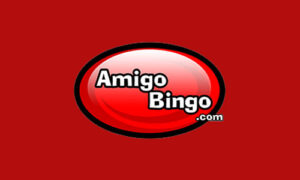When you ask many long-time bingo enthusiasts the question of why they keep on playing, they would probably tell you many reasons. Some would say it is due to the simplicity of the entire game.
Others would tell you that the excitement that happens when the next number is being called cannot be matched by any other game. On the other hand, there are people who would play bingo for a good cause.
The Relationship between Bingo and Charity
Before there was any relationship between these charitable organizations and bingo, the former would often resort to different modes to raise funds. Usually, they would do what Girl Scouts are known for: selling. They may offer food products, non-food items, and just about anything to their target market. The money they could come up with would then be an addition to their organization.
The funds could be used for a lot of things; it depends on the organization’s mission. Some would build shelters for the homeless, while others would raise funds for medical research. There are also organizations that would need the money to support their outreach projects.
However, there are already thousands of organizations out there that are doing the same thing. Let’s not forget the fact that people have become too wary of purchasing products, since there are also posers who would rip money off other people. Thus, selling didn’t just work anymore. They had to turn to something.
Bingo has always been a very popular game, because it’s simple, engaging, and exciting. Organizations had seen how many people were passionate about it and would be willing to spend money just to play the game. Hence, they thought of tying their goal and bingo together.
Bingo Are Played in Different Areas
Before, charitable organizations would hold bingo games in churches. It’s only logical. People would be trust the organizers more since there’s already the element of religion or Christianity.
However, it came to a point when churches could no longer contain the many players who would like to get their hands on bingo cards. They need to look for a bigger place.
Fortunately, there are bingo halls that could accommodate hundreds of players. Moreover, since they were built for such purpose, organizers could create different bingo schedules, giving themselves more opportunities to raise bigger funds.
Right now, you could see that some of these organizations have also branched out to the World Wide Web, thanks to the increase of online bingo websites. Nothing much has changed.
The organizers would still have to coordinate with the bingo operators to come up with an event just for their mission. Nevertheless, since the Internet can reach out to different parts of the world, these organizations would have the ability to seek more players.
Bingo and Charity: The Perfect Pairing for Fundraising
Bingo is a game that transcends generations and cultural boundaries, bringing together people for fun, competition, and, perhaps most importantly, camaraderie. While it has long been a staple in social gatherings, community events, and even family reunions, bingo has also found a significant place in the world of charity fundraising. This combination of entertainment and philanthropy has evolved into a powerful tool for raising money for various causes, ranging from health care to education.
The Appeal of Bingo
At its core, bingo is simple to play: participants mark off numbers on a card as they are called out, aiming to complete a predefined pattern. This simplicity makes it accessible to individuals of all ages, from children to seniors. The thrill of the game lies in the anticipation of each number and the excitement of shouting “Bingo!” when one’s card is filled, accompanied by a sense of community and shared experience.
Moreover, the social aspect of bingo enhances its appeal as a fundraising activity. Players often come together in groups, sharing laughs and stories while vying for prizes and bragging rights. This communal environment fosters a sense of belonging and connection, making it an ideal setting for promoting charitable initiatives.
The Role of Bingo in Fundraising
Bingo has proven to be a versatile fundraising tool. Organizations can adapt the game to fit various themes, budgets, and audiences. From casual local community centers to large-scale events held in banquet halls, the versatility of bingo events allows for customization to engage participants effectively.
- Accessibility: Hosting a bingo night requires minimal investment compared to more elaborate fundraising initiatives. Basic equipment, such as bingo cards, chips, and a way to announce the numbers (a ball cage or electronic board), is relatively inexpensive, allowing more funds to be directed toward the charity itself.
- Simplicity of Organization: Organizing a bingo event is straightforward. Most venues already have sufficient seating and space, and payments for card purchases can be collected upfront or through donations. This ease of planning can attract a higher turnout than other types of fundraisers that might require complicated setups.
- Engaging a Broad Audience: Because bingo appeals to a wide demographic, organizers can attract diverse audiences. Families, seniors, and young adults can all enjoy the game together, making it an excellent way to strengthen community bonds while supporting a charitable cause.
- Sponsorship Opportunities: Local businesses often see the value in supporting community initiatives. By sponsoring a bingo night, businesses can increase their visibility while contributing to a good cause. Sponsors can provide prizes, promotional items, and even refreshments, further enhancing the event’s atmosphere.
The Charity Connection
Charitable organizations have a unique opportunity to connect with their communities through bingo nights. Many groups—from schools to health organizations to animal shelters—can directly benefit from the funds raised during these events. The money generated can have significant impacts, allowing organizations to fund programs, support local families in need, or provide resources for education and training.
- Promoting Awareness: A bingo night allows organizations to not only raise funds but also promote awareness about their mission. Participants can learn about the specific cause they are supporting while having fun, making them more likely to continue supporting the charity in the future.
- Building Relationships: Charitable bingo events encourage networking among participants, fostering relationships between community members, local businesses, and the organizations themselves. This teamwork can lead to further support, whether through direct donations, sponsorships, or volunteer opportunities.
- Incorporating Thematic Elements: Many organizations choose to incorporate their mission into the bingo night itself, using themed rounds or special prizes that highlight their cause. For example, a health organization might focus a round on promoting wellness, providing health-related prizes and information during breaks in gameplay.
Planning a Successful Bingo Fundraiser
To ensure a successful bingo event, organizing teams should consider a few key elements:
- Venue Selection: Choose a location that is accessible and comfortable for all participants. Think about seating arrangements, parking, and facilities. A welcoming environment is crucial for keeping players engaged and coming back for future events.
- Promote the Event: Use social media, local newspapers, flyers, and community boards to advertise the event. Since bingo has a broad appeal, try to reach diverse audiences through different marketing channels.
- Set Ticket Prices: Determine a fair price for bingo cards that reflects the intended fundraising goal while remaining affordable to participants. Consider offering discounts for purchasing multiple cards or early-bird pricing to incentivize early registrations.
- Engaging Prizes: Offer a variety of prizes that appeal to a broad audience. Local businesses can contribute items or services, enhancing community ties and encouraging continued support for both the charity and local commerce.
- Plan Fun Activities: Besides the main game, consider adding side games or raffles, which can provide additional opportunities to raise funds. These activities keep the energy high and give participants more chances to win prizes.
- Follow Up: After the event, reach out to participants to thank them for their support and inform them of the impact their contributions made. Share stories and accomplishments made possible through their generosity, reinforcing a sense of community and connection.
Conclusion
Bingo has evolved from a simple social game into a powerful tool for charity fundraising. Its accessibility, ease of organization, and broad appeal make it an ideal choice for community organizations seeking to combine fun with philanthropy. A well-planned bingo fundraising event not only raises necessary funds but also strengthens community relations, promotes awareness of important causes, and encourages ongoing support for charitable initiatives. In a world where connection and community are more important than ever, bingo serves as a delightful reminder of the joy and impact of coming together for a good cause.

